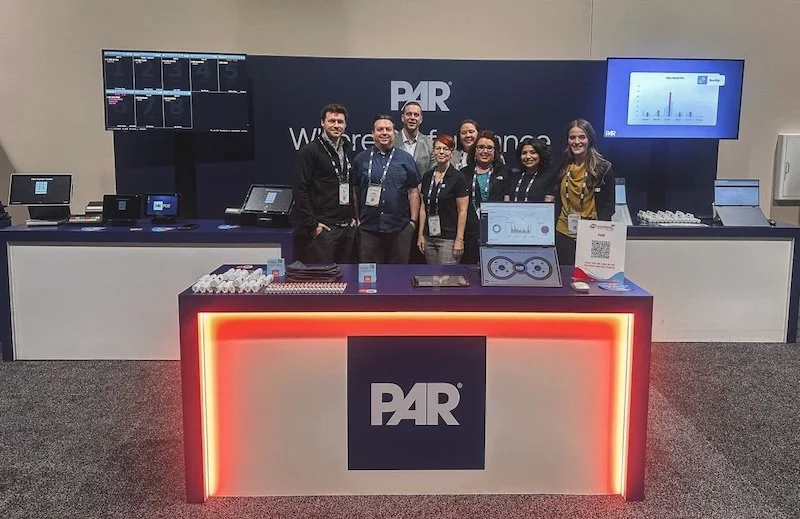How AI Is revolutionising accounting in retail
With tight margins and lots of costs to track, retail presents an ongoing challenge from an accounting standpoint. But artificial intelligence (AI) has stepped in as an asset that’s helping reinvent how retail businesses operate.
Everything from financial forecasting to day-to-day accounting is easier with the help of automation and other technological tools. And, as a result, job responsibilities and titles are shifting, as well.
Curious to learn more? Read on to discover how AI is revolutionising accounting in the retail industry!
Improved Efficiency
Traditionally, retail has involved lots of repetitive manual tasks, like bookkeeping and inventory management. Other responsibilities have included expense tracking, sales forecasting, and bank reconciliation.
These tasks are tedious, and with humans doing them, the risk for errors is always there. But the advent of AI has helped streamline these tasks while improving accuracy. Intelligent software platforms enable retail employees to process lots of transactions quickly.
Further, machine learning algorithms ensure that continual improvement is part of the process, as AI can detect patterns and identify inconsistencies over time. For retail professionals hoping to avoid major accounting problems and stay on track with their business plans, these tools are crucial.
Perhaps even more importantly, employees don’t need to invest as much time in manual tasks, such as data entry or invoice processing. Managers can reallocate their resources to focus more on strategic thinking and innovation.
And, since AI can monitor financial transactions in real-time, it’s much easier to identify fraudulent activity before it’s too late. AI can see shifts in patterns given historical data and flag suspicious transactions.
This helps retailers reduce revenue loss and potential penalties for failing to abide by financial regulations. Manual audits, by contrast, are more time intensive, and even the most diligent employee might not see a problematic situation.
Forecasting the Future
Retail professionals are always trying to anticipate consumer trends. AI makes this effort easier and more accurate. AI can help predict trends and develop pricing plans in response.
Additionally, AI can review data from sales over the past year, for instance, to help retailers make the most of their retail space. And when the busy seasons hit, automated systems make sure that retailers can keep pace with demand.
They’ll be able to glean insights more quickly about consumer behaviour and purchasing trends to help keep inventory stocked with the most desired products.
Accountants working within a retail setting are key to maximising the impact of AI. They can combine their financial acumen with technological assistance to offer essential financial forecasts. This helps retail leaders plan for the future, create more efficient budgets, and limit waste. Ultimately, AI plays a significant role in risk management for retailers navigating a volatile sector.
The Impact on Accounting
The vision of an accountant sitting at a desk with spreadsheets and a calculator is outdated.
Today’s accountants need to leverage AI tools to land positions working with top retailers and within other industries. That means knowing how to use data visualization platforms in conjunction with AI. Accountants should know when to rely on AI’s insights versus their own as they interpret complex data and weigh forecasts.
A new generation of accountants equipped with both soft skills and the latest technological know-how is making the landscape much more exciting for individuals interested in entering the accounting profession, too.
An entry-level CPA salary can start at six figures in some instances, offering a lucrative career path in which to use both problem solving and number-crunching skills. Those accountants who upskill and invest in learning the latest AI tools can position themselves for promotions and career advancements, whether within retail or any other industry.
Planning for More Advancements
AI continues to grow in sophistication, meaning that retailers will gain new tools and insights to incorporate in their accounting practices, as well as other areas. Retailers use customer relationship management (CRM) software, for instance, to assess and improve their relationships with customers.
AI-enhanced platforms can integrate with financial systems so retail leaders can make more informed decisions that consider a range of data.
After all, their goal is to meet customer expectations amidst shifts in the global financial markets. As in any industry, retailers need to keep their finger on the pulse of the latest AI advancements so they can stay competitive and maintain a solid financial foundation.
Harnessing the Power of AI
Accounting in the retail industry looks vastly different than it did twenty years ago, thanks in large part to AI. Tasks that used to rely on the human hand now can be automated, freeing up employees to focus on big-picture thinking.
AI also helps retail accountants refine their financial forecasts to help retailers maintain their edge in an industry known for tight margins and constant shifts in consumer demand. For accounting professionals eager to advance their careers, delving into AI’s potential as an asset is a requirement.































Continue reading…